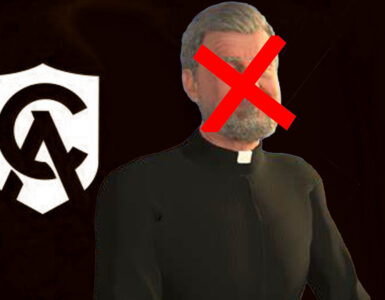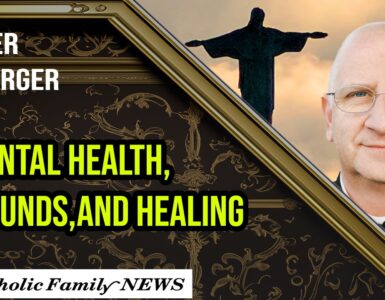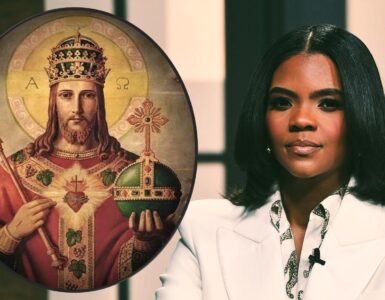It is just over one year since four Cardinals of the Holy Roman Church – two now deceased (requiscant in pace) – publicly announced their dubia (“doubts”) concerning Amoris Laetitia (AL), Pope Francis’ post-synodal apostolic exhortation “On Love in the Family,” arguably one of the most divisive and damaging papal documents in Church history.
Earlier this year, I wrote a three-part series of articles for our print edition entitled “Fatima Centennial: Know the Signs of the Times.” The series explored five major “signs” (recent/current events) in light of Our Lady’s Fatima Message, including what I called the “Amoris-Dubia Drama.” The “opening act” of this drama, in which the Church’s moral edifice and countless souls are at stake, took place at the Consistory of February 20-21, 2014, during which Cardinal Walter Kasper – Pope Francis’ guest of honor – delivered his infamous “Gospel of the Family” keynote address.
The Kasper Proposal, Prelude to Amoris Laetitia
In the fifth and final section of his speech, Cardinal Kasper advocated for the possibility of allowing divorced and civilly “remarried” Catholics to receive Holy Communion, even without a declaration of nullity from the Church or a commitment from couples in “irregular unions” to abstain from adulterous sexual relations. (His scandalous speech, rightly criticized by Prof. Roberto de Mattei and others, was released in book form shortly after the consistory.)
The sacrilegious “Kasper proposal” went on to become one of the dominant themes of the back-to-back Synods on the Family held in October 2014 and 2015, respectively. Edward Pentin, Rome correspondent for the National Catholic Register, thoroughly investigated the proceedings of the 2014 synod, including the ram-rodding of Cardinal Kasper’s proposal despite its lack of support (not to mention its objective impossibility), and published his findings in his 2015 eBook, The Rigging of a Vatican Synod? As Mr. Pentin summarized during his recent lecture at the Catholic Identity Conference, the evidence is clear that there was an agenda, from the very outset of the synods, to reach a predetermined outcome regardless of the assembled bishops’ input. That outcome is articulated towards the end of AL:
“Because of forms of conditioning and mitigating factors, it is possible that in an objective situation of sin – which may not be subjectively culpable, or fully such – a person can be living in God’s grace, can love and can grow in the life of grace and charity, while receiving the Church’s help to this end.” (para. 305)
“In certain cases, this can include the help of the sacraments.” (note 351, attached to para. 305)
After all, according to Francis, “it is [sic] can no longer simply be said that all those in any ‘irregular situation’ are living in a state of mortal sin and are deprived of sanctifying grace.” (AL, para. 301)
How he can maintain this position in light of Our Lord’s clear and absolute prohibition against divorce and adultery (see Matt. 19:1-9), not to mention St. Paul’s warning against receiving Holy Communion unworthily (see 1 Cor. 11:27-30), is beyond comprehension. Hence, the Cardinals’ dubia – five simple questions concerning fundamental points of natural and divine law whose yes-or-no answers are obvious – which Pope Francis has refused to answer for over a year.
Drama’s “Final Act” Approaching
The question, therefore, that all serious Catholics should be asking at this point is: Where is this Amoris–Dubia Drama leading? The only logical answer was provided by Cardinal Walter Brandmüller, one of the two surviving dubia Cardinals, shortly before Christmas last year: “Whoever thinks that persistent adultery and the reception of Holy Communion are compatible is a heretic and promotes schism.”
This is the sad and frightening reality: If Francis persists in refusing to recant his errors and clearly profess the Catholic Faith on disputed points (those highlighted in the dubia, as well as the theological critique which preceded it), he will manifest himself as obstinate in heresy and could very well lead a large portion of the hierarchy and laity into schism. Apart from divine intervention, this seems to be the inevitable “final act” of the drama in which we find ourselves.
Correctio on Heresy
Interestingly, the signers of the Correctio filialis (“filial correction”) of Pope Francis, made public on September 24 of this year, touched briefly on the possibility of papal heresy in their “Elucidation” (third and final section of the Correctio). Under the heading, “The problem of Modernism,” they outline 16 basic truths of the Faith “which are taught by Holy Scripture, Sacred Tradition, the universal consensus of the Fathers, and the magisterium of the Church,” including the nature and consequences of heresy:
“15. The sin of heresy is committed by a person who possesses the theological virtue of faith, but then freely and knowingly chooses to disbelieve or doubt a truth of the Catholic faith. Such a person sins mortally and loses eternal life. The judgement of the Church upon the personal sin of heresy is exercised only by a priest in the sacrament of penance.
16. The canonical crime of heresy is committed when a Catholic a) publicly doubts or denies one or more truths of the Catholic faith, or publicly refuses to give assent to one or more truths of the Catholic faith, but does not doubt or deny all these truths or deny the existence of Christian revelation, and b) is pertinacious in this denial. Pertinacity consists in the person in question continuing to publicly doubt or deny one or more truths of the Catholic faith after having been warned by competent ecclesiastical authority that his doubt or denial is a rejection of a truth of the faith, and that this doubt or denial must be renounced and the truth in question must be publicly affirmed as divinely revealed by the person being warned.” (Correctio, p. 12 – emphasis added)
Notice how they carefully distinguish between the sin of heresy, a matter of the internal forum, and the canonical crime of heresy, which involves public and obstinate persistence in error (i.e. pertinacity) even when confronted “by competent ecclesiastical authority.”
The signatories of the Correctio readily admit they do not possess “the competence or the intention to address the canonical issue of heresy.” Who, then, is competent to address this most pressing issue? Cardinal Raymond Burke, the unofficial spokesman for the dubia, answered this very question last December during an interview with Catholic World Report. When asked, “Who is competent to declare him [the Pope] to be in heresy?” Cardinal Burke stated, “It would have to be members of the College of Cardinals.”
Importance of Formal Correction
Thus, we see the vital importance of Cardinals Burke and Brandmüller issuing the formal correction they have promised on multiple occasions, an act which, as Cardinal Burke explained earlier this year, will consist of “a formal declaration to which the Holy Father would be obliged to respond.” Presumably, it will serve as the warning “by competent ecclesiastical authority” mentioned in the Correctio.
As to what, precisely, will happen should Pope Francis ignore even the formal correction, that is another matter entirely because, simply put, it will be a situation without precedent in Church history. Various theologians and Doctors of the Church (e.g. St. Robert Bellarmine, Cajetan, John of St. Thomas, Francisco Suarez) have, of course, written about plausible solutions for dealing with a formally heretical Pope, but their counsels have never actually been put into practice – the need has yet to arise, but it could be approaching soon. We can only ask, as Steve Skojec of OnePeterFive recently did:
“Will an imperfect council be called? Will the Pope be declared to have deposed himself through pertinacious and obdurate heresy? Will a new conclave be assembled among the tiny remnant of the faithful bishops? Will we once again have two rival claimants to the Petrine See?
Or will it be something completely different?”
“Be Sober and Watch”
Only God knows for sure. The best thing we can do – nay, must do – while we wait is pray fervently, especially the Holy Rosary, and find strength in the following verses of St. Peter’s First Epistle, after which Mr. Skojec’s apostolate is so aptly named:
“Be sober and watch: because your adversary the devil, as a roaring lion, goeth about seeking whom he may devour. Whom resist ye, strong in faith: knowing that the same affliction befalls your brethren who are in the world. But the God of all grace, Who hath called us into His eternal glory in Christ Jesus, after you have suffered a little, will Himself perfect you, and confirm you, and establish you. To Him be glory and empire for ever and ever. Amen.” (1 Pet. 5:8-11)



